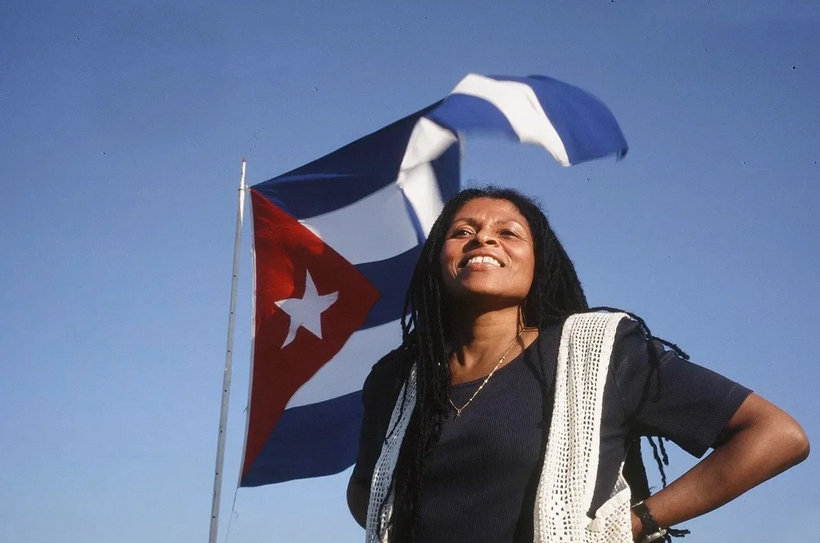
Assata Shakur was a radical Black feminist, revolutionary, and freedom fighter. Her life was a testament to true liberatory practice, love, and community. She taught us about the interconnectedness of our struggles as oppressed people and the necessity for resistance in the face of state and imperial violence, by any means necessary and no matter the cost to our own comforts. She also taught us that liberation cannot be negotiated; it must be seized. She stands as a hero for those of us fighting for the liberation of the global working class, and we honor the sacrifices she made to advance that cause.
After years of being targeted and hunted by police for opposing the racist, capitalist, and imperialist U.S. as a member of the Black Panther Party and later the Black Liberation Army, and after being stalked and surveilled by U.S. state agencies, including the FBI, Assata was arrested and falsely accused of murdering a New Jersey State Trooper in 1973. Despite Assata’s innocence, and the many experts who testified that her injuries during the altercation would have made it impossible for her to commit the murder, she was convicted by an all-white jury in 1977. While in state custody, the conditions under which Assata was held were nothing short of barbaric and inhumane, including solitary confinement in a men’s prison, 24-hour surveillance, and denial of intellectual nourishment and adequate medical attention, including when she became pregnant while awaiting trial in 1973.
Assata’s story is one that many living in Lënapehòkink (The Bronx) and across the U.S. empire at large may recognize or relate to. Her insistence on life and her years of fighting for the liberation of Black people living under state violence serve as a reminder to us all to remain “reluctant warriors” in the face of U.S. state terrorism. It was Assata’s militant comrades in the Black Liberation Army who liberated her from incarceration by the state; they did not abandon her after she was apprehended. They understood, as Palestinians do, that there was no future for their movement without that freedom. Let us remember the comrades who broke her out, some of whom served decades in prison and some of whom remain incarcerated. Salute to Sekou Odinga, Silas Muhammad, Mtayari Shabaka Sundiata, Winston Patterson, Silvia Baraldini, Marilyn Buck, Mutulu Shakur and other BLA comrades.
It is the militants and revolutionaries who are most repressed and incarcerated. We must learn from Assata and her comrades and apply those lessons to today. We have several comrades who are currently incarcerated and must also be liberated. Free Casey Goonan, Jakhi McCray, Tarek Bazrouk, Leqaa Kordia, Mumia Abu-Jamal, Kamau Sadiki, Rev. Joy Powell, Elias Rodriguez — FREE THEM ALL!
After successfully liberating herself from prison with the help of fellow BLA members in 1979, Assata was eventually granted political asylum in Cuba by Fidel Castro, and she lived out the remainder of her years as a free Black woman on liberated land, remaining vocal and devoted to Black liberation. Thank you to our Cuban comrades who protected and embraced Assata for the 41 years she called Cuba home.
We thank Assata for her relentless sacrifice, education, and fierce love and commitment to Black people and all those oppressed around the world. May her life be a continued reminder to the struggle that although we must survive, we also deserve to live. May her memory propel us forward until we are all free. May her teachings help light the path as the struggle continues.
“Nobody in the world, nobody in history, has ever gotten their freedom by appealing to the moral sense of the people who were oppressing them.”
Rest in Power, Comrade Assata.
source: Bronx Anti-War